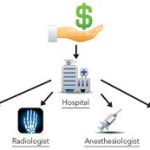
Do Patient Satisfaction Surveys Help or Hurt Reimbursement?
The “patient is always right” model has been the primary driving force behind healthcare for the last several decades. But is this the right approach? Classifying patients as “customers” is a slippery slope. While you might be able to barter with a customer at a shop about the price of a necklace, should doctors ever barter with a patient about their treatment? What about when their patient satisfaction scores are drooping low?




